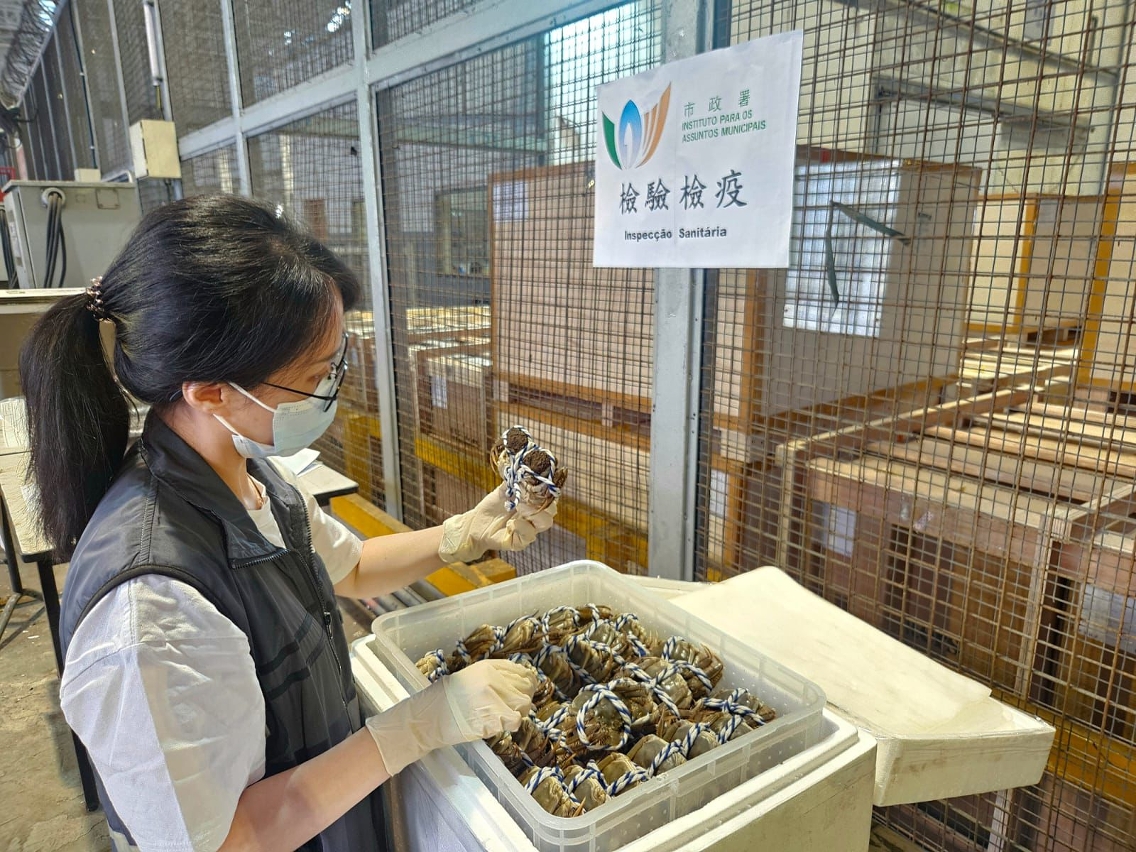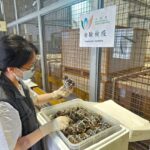 The IAM carries out regular monitoring of hairy crabs
The IAM carries out regular monitoring of hairy crabs
The Municipal Affairs Bureau (IAM) continuously carries out food safety monitoring and sampling tests to assess the consumption risks and hygiene conditions of food products available on the market. In the third quarter this year, a total of 677 food samples were randomly collected from the market in Macao for testing, with an overall pass rate of 99.4%.
A total of 399 samples of general food products available on the market and 278 food samples from the food and beverage sector were randomly collected in the quarter. The sampling locations covered restaurants, Chinese restaurants, food establishments, takeaway shops, supermarkets, frozen meat stores, grocery stores, etc. in various districts of Macao. The test items included common pathogenic bacteria, heavy metals, prohibited substances, food additives and mycotoxins, among others.
Among the food samples randomly collected for tests in the third quarter, two types of sugared fruits were found to have excessive amounts of the sweetener aspartame, exceeding the requirements of the “Standards on the Use of Food Additives in Foodstuffs” of Macao. In addition, Vibrio parahaemolyticus and Listeria monocytogenes were detected in the food and beverage samples from two establishments respectively, exceeding the requirements for pathogenic bacteria in the “Microbiological Guidelines for Ready-to-eat Food”. No abnormalities were found in the tests results of the remaining 673 samples.
IAM previously followed up on the mentioned problematic cases and requested the establishments concerned to stop selling the mentioned products, trace the sources and flow of the products sold, contact the local supply and retail establishments, etc. IAM has also issued press releases to inform the public. The results of the routine food surveillance for the third quarter of this year have been uploaded to the Food Safety Information website of IAM www.foodsafety.gov.mo for public reference.
Hairy crabs required to undergo quarantine and be imported via proper channels
As the peak season for hairy crab consumption has arrived, IAM continues to step up the monitoring of hairy crabs from their import to retail supply through strict import inspection and quarantine system and market inspection mechanism to ensure the quality and safety of the crabs for human consumption. IAM reminds members of the local food sector that in whatever form the hairy crabs are sold, they must ensure that the crabs have been properly imported and undergone inspection and quarantine. They must not supply or sell hairy crabs that have not been inspected, otherwise they may be prosecuted. Meanwhile, according to the “Registration System for Retail Establishments of Fresh and Live Food”, all retail establishments of fresh and live food are required to register in accordance with the law. If they use the Internet, social platforms or third-party trading platforms as operational or promotional media, they must also display the registration number of the establishments and other information on the platforms for the identification by consumers.
IAM also reminds the public that they should purchase hairy crabs from reputable and hygienic shops. If they purchase hairy crabs online, they should pay attention to whether the seller is a qualified retail establishment of fresh and live food, and whether the business information such as the registration number has been displayed on their online profile. When handling fresh aquatic products, they should pay attention to the protection of personal hygiene. If there are wounds on the hands, they should be bandaged before wearing gloves. Freshwater aquatic products should never be eaten raw and should be cooked thoroughly before eating. In addition, the public are advised not to bring hairy crabs into Macao by themselves when returning from other places.


